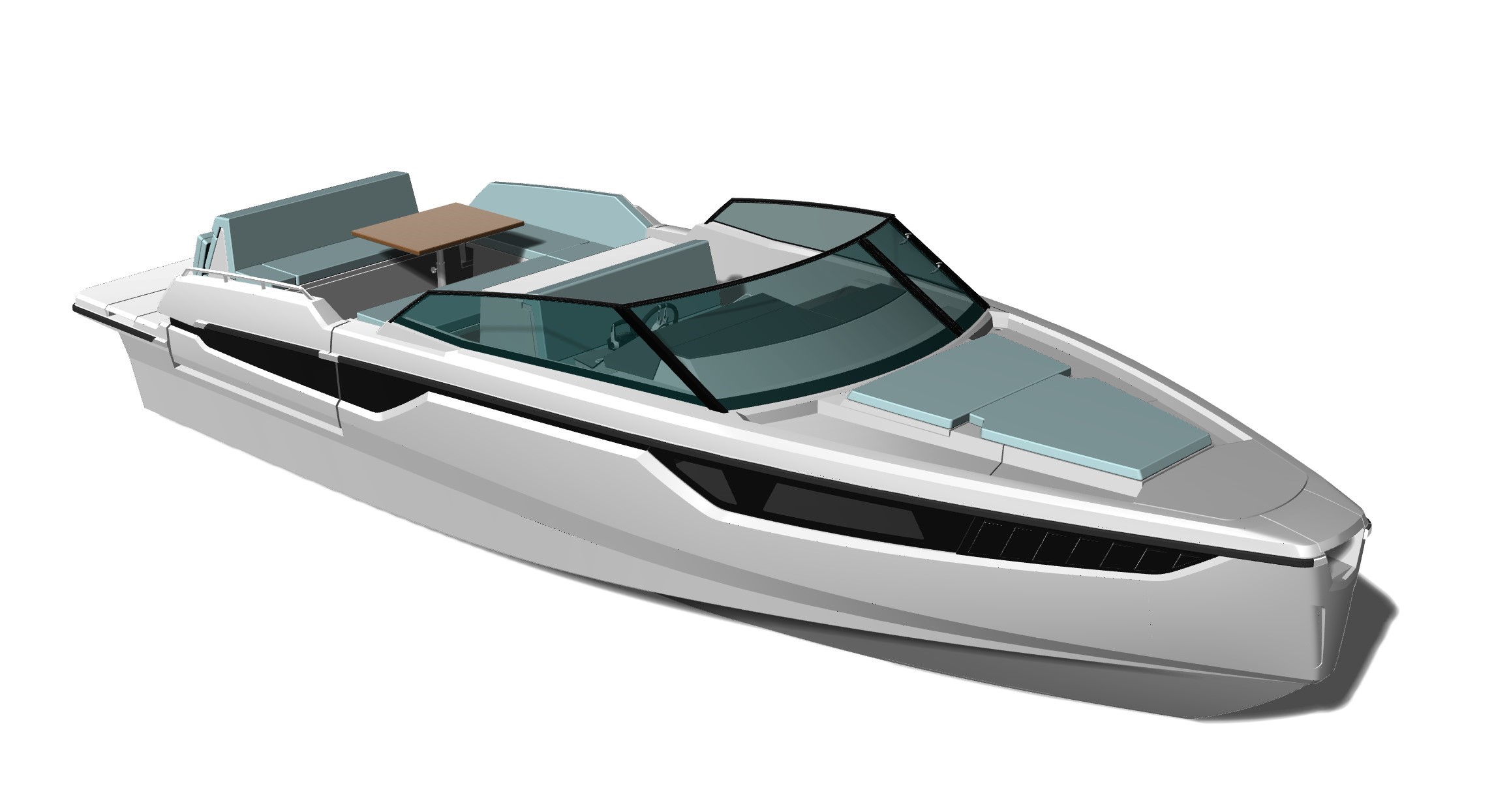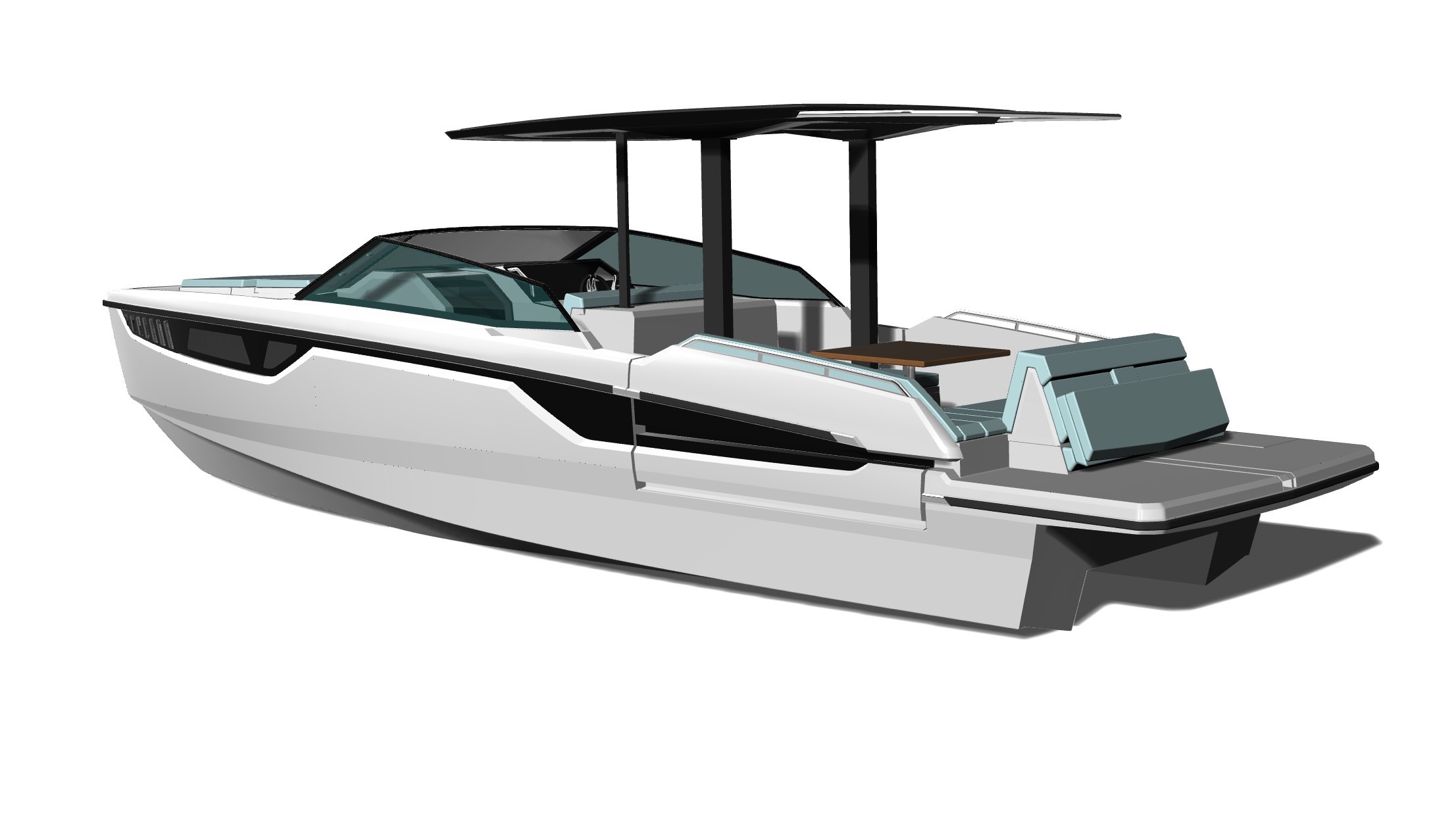Feel the ripple
Ripple Boats exists to make boating sustainable, and we want to do it by putting fun at the center of the experience. We use cutting edge range-enhancing air cushion technology, so your boating experience is as fun and worry free as possible.
1. What is an electric boat?
An electric boat is any boat or ship whose primary propulsion technology is an electric drive system. It can be full battery electric, hydrogen fuel cell electric, or electric hybrid boat or ship, from tugboats, ferries, cargo ships, and barges to tour boats, fishing trawlers, cruising yachts, crewless underwater vehicles (UUVs), and beyond.
The range of electric boat offerings is fast growing in the market. Many of the most prominent brands innovate not only on the electric powertrain but increasingly look for more energy efficient hulls or technologies. While some have chosen to fly above the waves, Ripple Boats maintains its connection to the water through an innovative but simple surface-effect technology.

2. What are the main advantages of electric boats?
Electric boats are sustainable and environmentally friendly
Electric boats' clean, efficient electric propulsion and power systems reduce air and noise pollution. In addition, they don't contribute to the increasing pollution of our rivers, streams, or lakes with spilled fuel or toxic residues. You can generate electricity for shore power charging in several different ways. Thus, operators may choose to have greater independence by owning their power source, for example, solar panels.
Electric motors are environmentally friendly. They emit no pollutants or greenhouse gases and are silent. What are the environmental effects of switching to an electric boat An electric boat produces zero exhaust emissions, so it causes zero pollution in the air and water when out at sea. Zero pollution is excellent for the environment and enables you to breathe fresh ocean air instead of fumes.

Electric boats enable an enjoyable, fun boating experience - no noise, no smell, smaller wakes
On board an electric boat, there is no noise, vibration, or smoke from a conventional petrol or diesel engine. Everyone can talk to each other as if sitting on your patio or the waterside. On smaller day boats, this is especially important. Where you would otherwise be less than a few feet away from a noisy petrol engine, which will still be intrusive no matter how well insulated it is, the only sound you will hear is the water rippling past your hull or the calls of the wildlife. The pleasure becomes the journey, not the getting there. An electric boat is easier to drive and handle, with fingertip control of motor speed from zero rpm up to full power. You will experience no thump as you go into gear and jerk as you set off at pace. Instead, you can inch your way around the marina and into your berth or slip silently into the most secluded idyllic mooring. No problems pull-starting a small outboard –turn the switch, and you are immediately in control.
3. How do electric boats compare to conventional boats?
Ripple boats are almost entirely silent, easy to maintain, and with zero exhaust emissions. They are also highly user-friendly and impossible to steal (since there is no outboard motor). On top of that, electric boats' operating costs are significantly lower. And just like electric cars, the strong acceleration gives you excellent driving pleasure and provides an excellent platform for watersports.
Usually, it is difficult to combine an electric boat with the element of high speeds because the battery will run out fast at high speeds. Thus, you need a range-extending technology to remedy this problem (like the AirHull designed for Ripple Boats).

